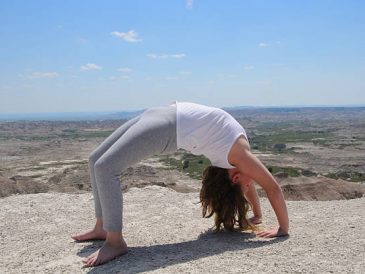In recent years, yoga has emerged as more than just a physical exercise regimen or a spiritual practice; it has become a catalyst for change, fostering well-being and creating employment opportunities, especially among young people in Africa. As the ancient discipline gains popularity worldwide, its transformative effects are particularly profound in the African context, where issues such as unemployment, stress, and mental health challenges are prevalent. Through a combination of physical postures, breathing techniques, and mindfulness practices, yoga is not only enhancing the health and vitality of African youth but also empowering them to build sustainable livelihoods.
Africa, a continent marked by its rich cultural diversity and vibrant traditions, is increasingly embracing yoga as a holistic approach to health and wellness. In countries like Nigeria, Kenya, South Africa, and beyond, yoga studios, wellness centers, and community initiatives are springing up, offering a sanctuary for individuals seeking balance and healing amidst the pressures of modern life. What’s more, these spaces are not just centers for personal practice; they are also hubs for skill development and economic empowerment.
One of the most significant impacts of yoga on young Africans is its ability to alleviate stress and promote mental well-being. With high levels of unemployment, economic uncertainty, and social upheaval, many youths across the continent grapple with anxiety, depression, and other mental health challenges. Yoga provides a toolkit for managing these issues, offering techniques such as meditation and mindfulness that cultivate resilience and inner peace. By integrating yoga into their daily lives, young people are better equipped to navigate life’s uncertainties and face adversity with equanimity.
Moreover, yoga is creating employment opportunities for youth in Africa, both directly and indirectly. Beyond teaching yoga classes, which in itself can be a lucrative profession, there is a growing demand for skilled practitioners in various related fields. From holistic wellness coaches and meditation instructors to organic farming and sustainable living advocates, the principles and values instilled by yoga are shaping new career pathways. Additionally, the burgeoning wellness tourism industry presents opportunities for young entrepreneurs to establish retreat centers, eco-resorts, and wellness spas that cater to both local and international clientele.
In countries where access to traditional employment opportunities is limited, yoga offers a viable alternative for youth empowerment and economic development. By providing training programs, certification courses, and mentorship initiatives, organizations and NGOs are equipping young Africans with the skills and knowledge needed to succeed in the wellness industry. These initiatives not only foster personal growth and self-empowerment but also contribute to the overall socio-economic development of communities.
Furthermore, yoga serves as a vehicle for social inclusion and community building in Africa. Regardless of socio-economic background, ethnicity, or religion, yoga is accessible to all, promoting unity and solidarity among diverse populations. Community yoga classes, outreach programs, and initiatives targeting marginalized groups are breaking down barriers and fostering a sense of belonging. By embracing yoga, young Africans are not only improving their well-being but also contributing to the creation of more cohesive and resilient communities.
The benefits of yoga extend beyond physical and mental health; they also encompass environmental sustainability and conscious living. As young Africans reconnect with their bodies, minds, and spirits through yoga, they develop a deeper appreciation for the interconnectedness of all life forms and the importance of preserving the natural world. This awareness translates into action, with many yoga practitioners adopting eco-friendly lifestyles, supporting sustainable businesses, and advocating for environmental conservation efforts.
In addition to its positive impact on individuals and communities, yoga is also gaining recognition as a tool for peacebuilding and conflict resolution in Africa. In regions affected by violence, trauma, and social unrest, yoga-based interventions are being implemented to promote healing, reconciliation, and dialogue. By fostering empathy, compassion, and non-violence, yoga contributes to the creation of more peaceful and harmonious societies.
However, despite the growing popularity of yoga in Africa, there are still challenges that need to be addressed. Access to affordable yoga classes and training programs remains limited in many areas, particularly in rural and underserved communities. Furthermore, there is a need for greater cultural sensitivity and adaptation to ensure that yoga is accessible and relevant to diverse African contexts.
Yoga is emerging as a powerful force for well-being and employment generation among young people in Africa. By providing a holistic approach to health and wellness, fostering economic empowerment, promoting social inclusion, and advocating for environmental sustainability, yoga has the potential to transform lives and communities across the continent. As Africa continues to harness the transformative power of yoga, the future holds promise for a generation of empowered and resilient youth who are equipped to thrive in a rapidly changing world.




